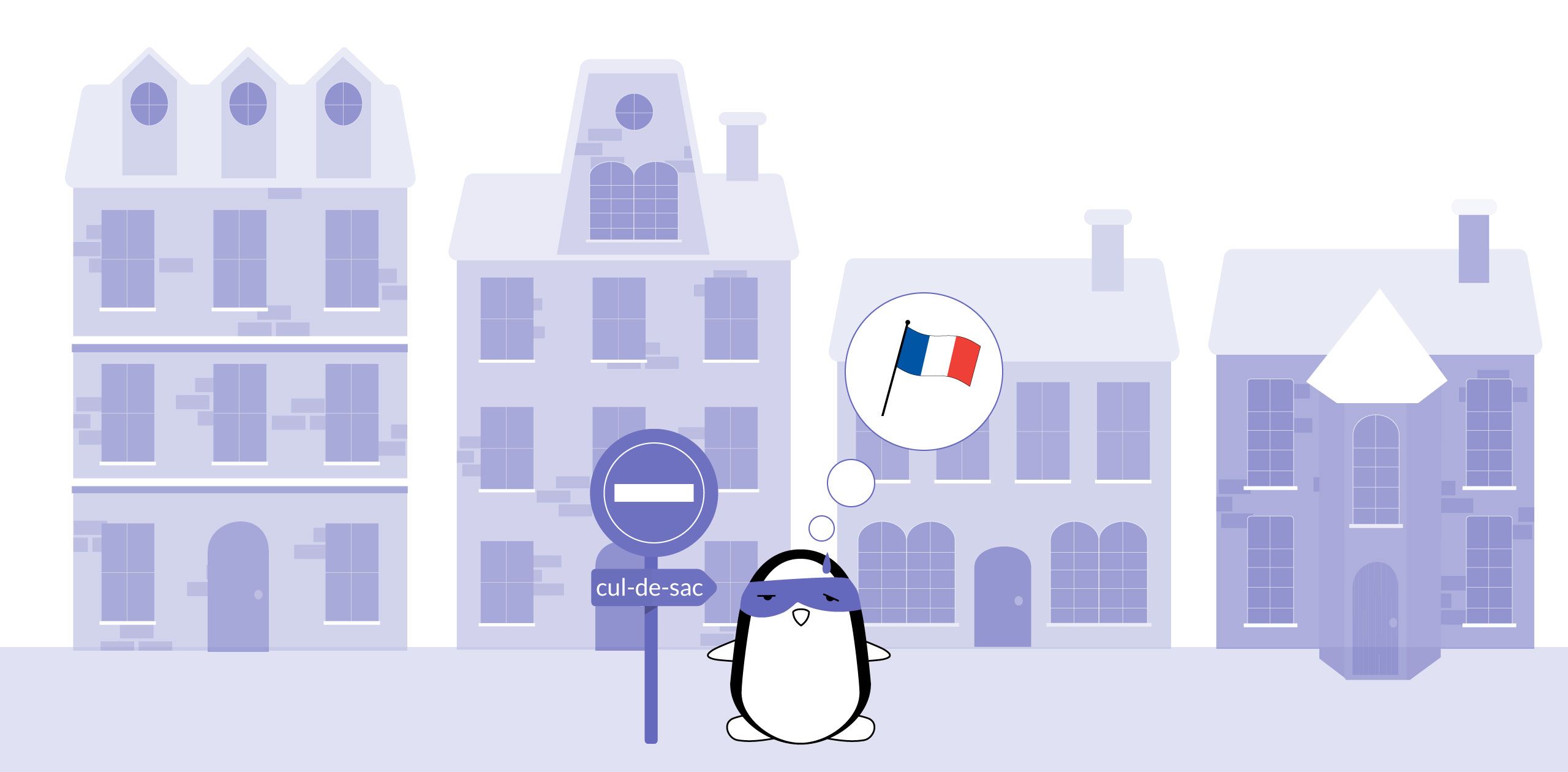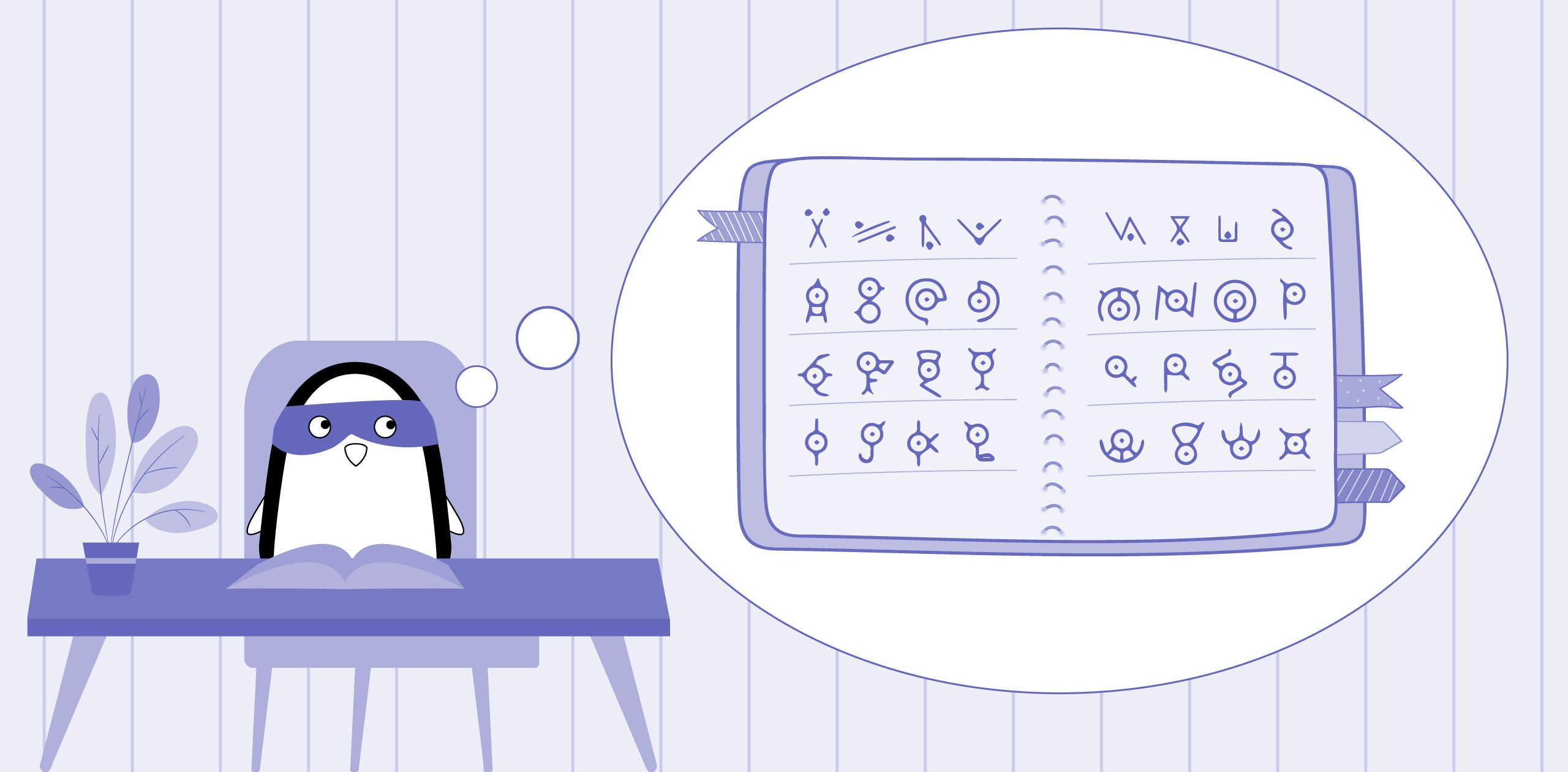
French is often referred to as the language of love, so here we go. If you are looking for a way to say “I love you” in French, there are plenty of phrases to choose from - and also plenty of traps to fall into.
We’ve picked the 6 most important expressions you can use to show your love in French. From Je t'aime (I love you,) to Je suis fou de toi (I'm crazy about you,) we’ve got everything you need to know for creating your own French lova story.
Spoiler: Be aware that native French speakers rarely spell it out, but “je t'aime” is most commonly used when saying a romantic “I love you” in France. With that in mind, let’s start.
Learn French with Langster
Je T'aime as the Most Common Way to Say “I Love You” in French
Je T'aime Needs to Be in Context
The basic French “I love you” - “je t’aime” - is known all over the world. You could have heard it in French love songs or movies, read in a French love story, or even overheard on a Parisian street as someone uses it in real life. Who knows, maybe you have even said it to someone you love?
However, it is important to know how and when to say “je t’aime,” especially if you want to use this expression on different occasions, such as Valentine’s Day or when spending time with friends.
The verb aimer that comes along with “je t'aime” can actually mean both “to like” or “to love,” which makes the context of the situation very important. Depending on the situation you’re saying it in, the meaning of the phrase can change rapidly.
Let’s say you’re in a very romantic situation and the other person says “je t'aime” while looking deeply in your eyes. You can be pretty sure that this “je t'aime” translates to a romantic “I love you.”
However, if you are walking together with a friend and they say Je t’aime bien (something that can be literally translated as “I love you very much”), this can simply mean they like you.
If you’re saying “je t’aime bien” or “je t’aime beaucoup” to a family member or to your partner, it always means that you love them.
French
English
Je t’aime
I love you
Je t’aime bien
I love you / I like you
Je t’aime beaucoup
I love you / I like you
And if you want to say someone you love or like them via the text messages, you can use the French sms slang: Je t’m.
Je T'aime as a Perfect Example of French Grammar
Not only can “je t’aime” help you express your romantic love, but it can also help you learn some basics of French grammar.
In English, the sentence order is usually as follows: subject (the person who does something,) verb (the action the subject does,) object (the target of the action).
In French, as seen in the case of “je t'aime,” the verb and the object are reversed to form a sentence with the structure subject - object - verb. So, you’re literally saying “I - you - love.” This is because when the object is a pronoun (for example, “te”), it is always placed in front of the verb. Also, you can learn the conjugation of one of the most common French verbs here.
The second basic rule we can learn from “je t'aime” is the following: when the pronoun ends with a vowel that is followed by another word starting with a vowel, you should replace the final vowel of the first word with an apostrophe. When you say it, it should sound like one word. Because of that, we don’t say “je te aime,” but “je t'aime.”
How to Respond to Je T'Aime
If you love the person back, the most common way of replying to “je t’aime” is “moi aussi, je t’aime,” which means, “I love you, too.”
If you don't love the person back… well, this might be awkward in any language. You could say Je ne t'aime plus (I don't love you anymore) if your love has faded. Or you can get to a straight Je ne t'aime pas (I don't love you) if you never loved this person in the first place.
If you want to respond to “je t'aime” in a more polite manner, you could use “Je t’aime bien” which basically means, “I like you (as a friend).” This way, you can let the other person down softly.
“Je t’aime bien” does not make it better for the other side, but it is an okayish way out. It still means that you are fond of this person, just not in the way they hoped.
Of course, you can also love your crazy French in-laws back. Simply say Je vous aime aussi (I love you too) if your future French mother-in-law just gave a heartwarming speech about you at your wedding and you simply have to reply something nice back.
Be sure to see some chuckles when expressing your love in French that way.
French
English
Moi aussi, je t’aime
I love you, too
Je ne t'aime pas
I don't love you
Je ne t'aime plus
I don't love you anymore
Some Other Phrases for Showing Your Love in French
By adding some other words to “je t’aime’, you can make the phrase sound more romantic. For example, you can say:
French
English
Je t’aime très fort
I love you strongly
Je t’aime à la folie
I love you like crazy
Je t’aime à mourir
I love you to death
Je t’aime de tout mon coeur
I love you with all my heart
Je t’aime jusqu’à la lune et le retour
I love you to the moon and back
Je t’aime plus que la vie
I love you more than life
Je t'aime d'amour
I love you with true love. / I truly love you.
T'es l'amour de ma vie.
You are the love of my life.
Je T'adore Is a More Formal Way to Say “I Love You” in French
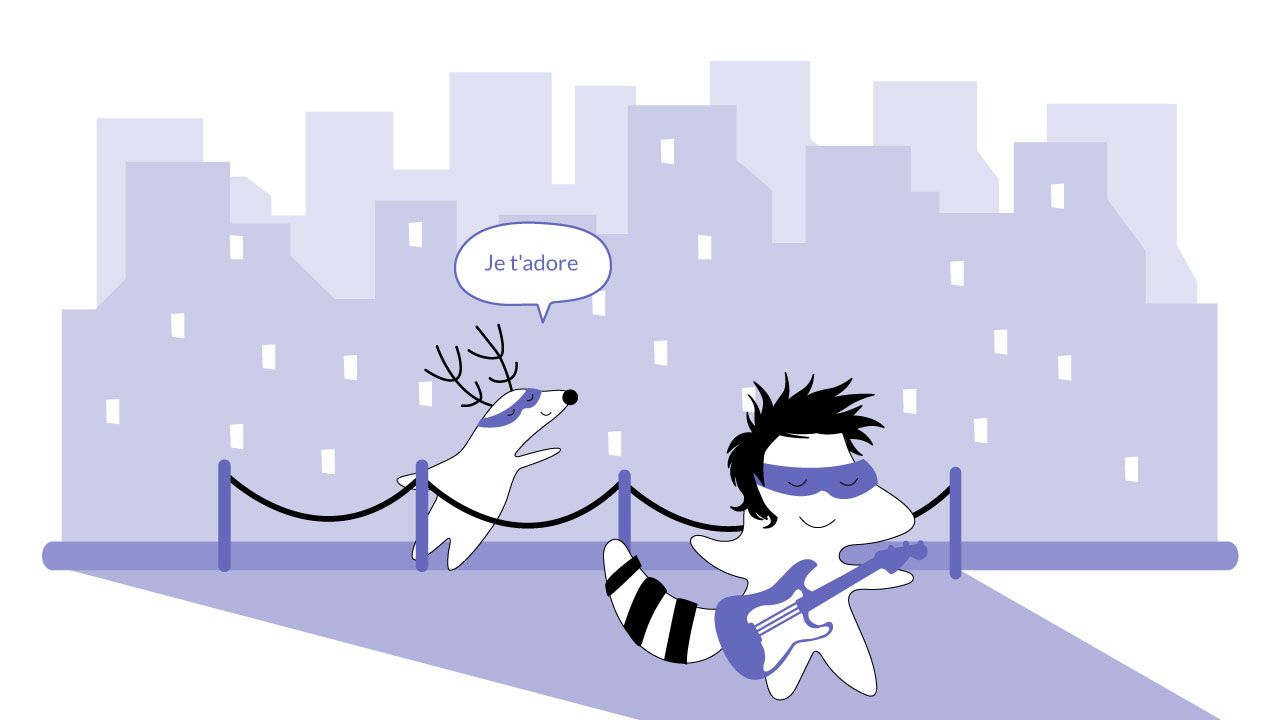
When Can You Say It?
The phrase “je t'adore” is a rarely used way to say “I love you” in the French language. You would rather use it when talking to a very close friend & family. As you may have already figured it out, it can be translated as “I adore you.”
This is one of the phrases that can help you express your love for someone in a non-romantic way. It is rarely used when directed to a person - it is much more common to say that you “adore” an object or an activity.
You usually say J’adore to manifest a strong feeling or desire for things. For example, when you are a fan of someone or their work and want to say how much you love it, using the verb “adore” can be a good choice.
French
English
Je t'adore
I adore you
What About Grammar?
Here, we have a similar construction to “je t’aime” - an object that comes before a verb as well as a pronoun “te.” Nevertheless, as stated above, if you use adorer with a regular object (such as chocolate), the construction will go the normal way you’re used to in English.
Let us take J'adore le chocolat as an example. You can see that the direct object “le chocolat” is put after the verb.
Try to find objects around you and say you admire them. By doing so, it will be easier for you to remember the article in front of the noun: J'adore le chocolat, J'aime le vin, J'aime le fromage and “les” for plurals respectively. Ok, enough cliché for today.
How to Respond to This Phrase?
In this case, you can of course go with an easy Je t'adore, aussi as in “I like you, too'; or Moi aussi (me too). As you could've deducted, the French word "aussi" means "too."
However, this is a rather strong expression and can come along awkwardly if your ties with the other person are not too deep. In such a case, it would be better to reply with something like Je t'aime beaucoup to defuse the situation.
French
English
Je t'adore, aussi
I like you, too
Moi aussi
Me too
Je T'Aime Beaucoup Is Not Just Another Way to Say “I Love You” in French

When to Use Je T'aime Beaucoup
You probably know that “beaucoup” means “a lot.” Because of that, many English speakers think that saying “Je t’aime beaucoup” literally means “I love you a lot.” You may think about using it to express your romantic love so that other person doesn’t think you just “like” them in a friendly way.
Wait, this is actually a trap. When it comes to saying “I love you,” French can sometimes be sneaky. The above would make perfect sense - but unfortunately, it doesn’t work that way.
“Je t'aime beaucoup,” actually translates to “I like you a lot.” This is what you can say to a friend, but not to your lover. “Je t’aime beaucoup,” will reduce your romantic relationship to a good friendship and probably cause a lot of confusion.
“Je t'aime,” is very similar to the already mentioned “je t’aime bien,” or also “je t’aime vraiment,” as a statement of liking someone (and not loving them romantically).
The best way to respond to, “je t'aime beaucoup,” is a simple, “moi aussi, je t'aime beaucoup.”
French
English
Je t'aime beaucoup
I like you a lot
Je t’aime vraiment
I like you a lot
In Love: Je Suis Amoureux/Amoureuse de Toi
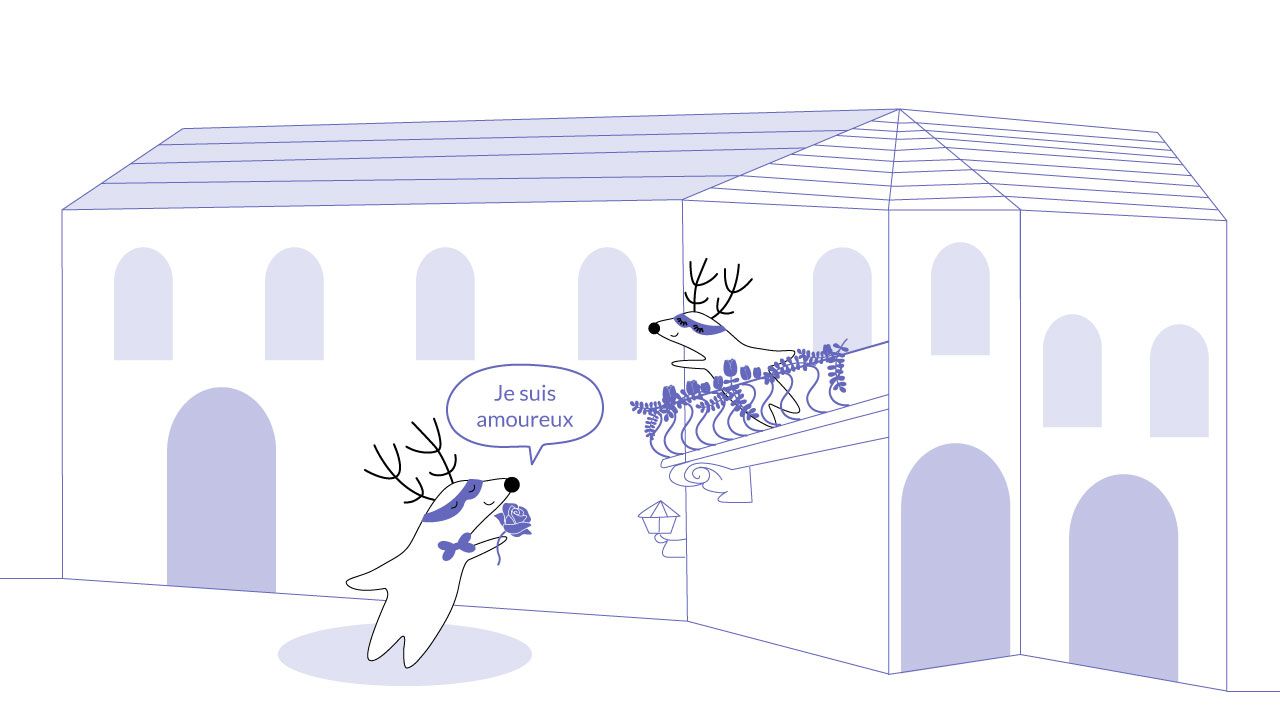
How to Use This Phrase?
Another way to say “I love you,” in French is by using “je suis amoureux/amoureuse de toi.” This phrase basically means “I am falling for you,” or “I'm in love with you.” As well as in other languages like English, this phrase is a little softer than a straight “je t'aime.”
It is usually described as the process of starting to fall in love with someone and hence should be only said to your lover. You can also use it when telling friends about your love at first sight or the person you are pining for. You can even add some other beautiful French words to this phrase to make it sound even more ravishing.
Similar to the English expression “I’m falling in love with someone,” the French also say, je pense que je tombe amoureux/se de vous/toi, which literally translates as “I think I am falling in love with you.” Smooth!
French
English
Je suis amoureux/amoureuse de toi
I am falling for you / I'm in love with you
Je pense que je tombe amoureux/se de vous/toi
I think I am falling in love with you
Grammar Rules of Je Suis Amoureux/Amoureuse de Toi
The adjective here changes its form depending on your gender. As a man (or if you identify yourself as a man), you would say “je suis amoureux de toi.”
As a woman (or if you identify yourself as a woman), you would say or text “je suis amoureuse de toi.” This uses the feminine form of the verb.
If you want to stay neutral, just use the masculine form. It serves both masculine and neutral genders.
What About Pronunciation?
Note that the pronunciation is different depending on the form of the word you’re using. “Amoureuse” will be pronounced as a moo røz, while the ending -eux in the “amoureux” is a silent one.
How to Respond to This Phrase?
If you do not share the same feelings for the person, you could say something like “Je t'apprécie mais je ne partage pas les mêmes sentiments que toi” - “Sorry, but I don’t feel the same about you.” For the happy case, you can say “moi aussi, je t'aime', followed by a kiss or a hug.
French
English
Je t'apprécie mais je ne partage pas les mêmes sentiments que toi
Sorry, but I don’t feel the same about you
Tu Me Manques - “I Miss You”
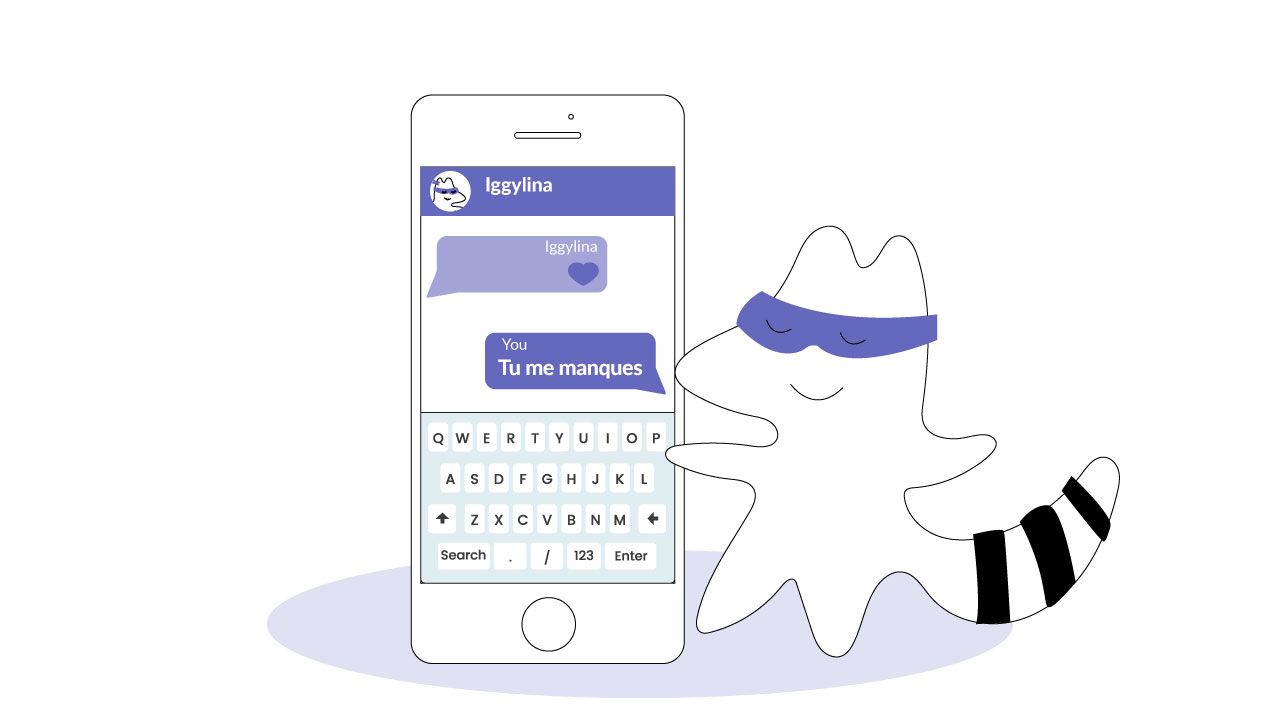
When you love someone, it’s only natural that you will miss them when you are apart. Whether you are in a long-distance relationship or simply can’t stand spending a whole day alone without your loved one, learning several French phrases that will help you convey this feeling can help.
“Tu me manques” may be the best thing to say. When you want to tell someone how much you’re missing them, this phrase will do the trick. It can be used both when talking to romantic partners or close friends and family members.
Basically, this phrase means “you are missing from me.” This expresses the feeling of nostalgia for a person or thing that is not there with you - and it is super romantic, if you ask us.
French
English
Tu me manques
I miss you
What About Grammar?
First of all, let’s take a closer look at the sentence construction. While the phrase may seem a little strange, it’s structure is just the same as before: subject - object - verb (you - by me - are missed).
What makes the sentence seem odd is the verb manquer that we’re using here. Unlike the verb adorer that we use when talking about love, it requires a backwards composition. So instead of saying “I miss you,” you are turning all the necessary words around.
This happens because in French, the subject of the sentence is the person or thing who is missed - “tu” here. However, the situation is a little more complicated.
When you’re using the word manquer with the pronouns (me, you, them, etc.), you can directly say “tu me manque.” However, if you are talking about someone or something (for example, Pierre who misses Marie), you will have to add the preposition “à” preceding the person or thing who is doing the missing: “Marie manque à Pierre.”
This literally translates to “Marie is being missed by Pierre.” This can be a little tricky, so it’s important to remember.
Another thing to remember is that the verb here agrees with the first pronoun or noun, not the one just before the verb - so it will be “tu me manques,” “vous me manquez,” etc.
How to Respond to Tu Me Manques
That’s simple: you can say Tu me manques aussi (I miss you too) or Toi aussi (me too). Note that in the second sentence, the pronoun should agree with the first pronoun in the main sentence. So if you say “you are missed by me,” the other person will reply “you are too.”
Or, if you want to add a bit of casual fun here, say "Yes, I know." - "Oui, je sais."
Je Suis Fou de Toi - When You’re Madly in Love
“Fou” means “crazy,” so this phrase is basically an alternative to the English “I’m crazy about you.” Earlier, we have covered a similar phrase: “je t’aime à la folie” (I love you like crazy).
French
English
Je suis fou de toi
I'm crazy about you
As you can see from the context, this phrase can be used to express your romantic, passionate feelings for someone. However, you definitely should avoid saying this to your mother-in-law.
On the other hand, you can use this phrase to show that you are crazy about something. For example, if you like your work, you can say, “Je suis fou de ma travaille,” or if you are passionate about skiing, you can say, “Je suis fou de ski.”
French Grammar You Can Learn From This Phrase
When it comes to the word “fou,” you can use it in its main meaning to say that someone is crazy or mad.
However, you can also use the expression “fou de” to show the range of your emotions. For example, “fou de chagrin” will mean “wild with grief,” “fou de joie” - “wild with joy,” and “fou de colère” - “wild with anger.”
How to Respond to Je Suis Fou de Toi
Just like with other expressions, you can respond with “moi aussi” - “me too.”
Summary: Express your Love in French
French is seen as the language of love and romance all over the world. There are multiple ways to say “I love you” in French. Which phrase you choose depends on the situation and recipient.
So, What Have You Learned?
You now know in what context to use different French phrases, starting with “je t'aime” (I love you) as the most important and known (but rarely used) expression among lovers.
You have also learned how French grammar works, and how to respond to different expressions based on what situation you are in. Remember, “moi aussi,” works as a response in most situations.
For example, if you are among very close friends and family members, you can use “je t'adore.” It expresses a strong bond, but is rarely used to express love for people. Normally, French people use it for showing their likings for objects or habits.
To honor friendships, you can use one of the most common phrases in French - “je t'aime beaucoup” which literally means “I love you a lot.” To show passionate feelings, you can always say “je suis fou de toi.”
There are still many romantic French phrases to choose from. For example, an expression commonly used in French love songs is, “je t'ai dans la peau” (I've got you under my skin). However, knowing when and how to use these six phrases is a good start.
Remember that context matters. It is easy for you to learn any sentence or phrase when it matters personally. What we do at Langster is exactly that: Provide you with context that matters as you learn French or any other language you want to master. See for yourself:
Learn French with Langster







